
Jonathan Lambert was a staff writer covering biological sciences at Science News from 2019 to 2021. He earned a master’s degree from Cornell University studying how a bizarre day-long mating ritual helped accelerate speciation in a group of Hawaiian crickets. A summer at the Dallas Morning News as a AAAS Mass Media fellow sparked a pivot from biologist to science journalist. He previously wrote for Quanta Magazine, NPR, and Nature News.

Trustworthy journalism comes at a price.
Scientists and journalists share a core belief in questioning, observing and verifying to reach the truth. Science News reports on crucial research and discovery across science disciplines. We need your financial support to make it happen – every contribution makes a difference.
All Stories by Jonathan Lambert
-
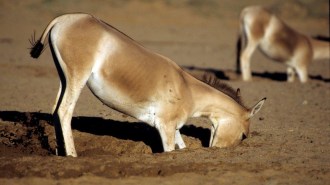 Ecosystems
EcosystemsWild donkeys and horses engineer water holes that help other species
Dozens of animals and even some plants in the American Southwest take advantage of water-filled holes dug by these nonnative equids.
-
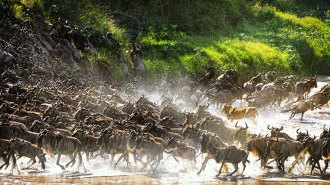 Life
LifeOnly 3 percent of Earth’s land hasn’t been marred by humans
A sweeping survey of terrestrial ecosystems finds that vanishingly little land houses all the animals it used to. Species reintroductions could help.
-
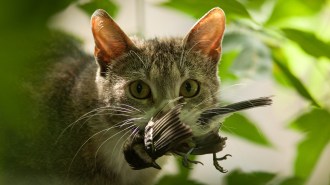 Life
LifeThese are the 5 costliest invasive species, causing billions in damages
Invasive species have cost the global economy at least $1 trillion since 1970 and $162.7 billion in 2017 alone. The annual cost is increasing.
-
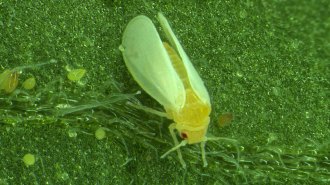 Life
LifeA plant gene may have helped whiteflies become a major pest
An agricultural pest may owe part of its success to a plant detox gene it acquired long ago that lets the insect neutralize common defenses.
-
 Health & Medicine
Health & MedicineThe latest Ebola outbreak may have started with someone infected years ago
Rather than stemming from a virus that jumped from an animal to a person, this outbreak might have originated from someone who had a dormant virus.
-
 Animals
AnimalsCone snail venom may trick mate-seeking worms into becoming meals
Cone snail venom contains worm pheromone mimics, suggesting the chemicals may be used to lure worms during hunting.
-
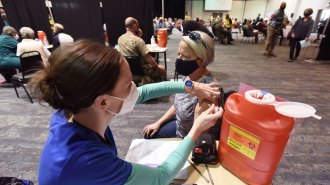 Health & Medicine
Health & MedicineThe COVID-19 pandemic is now a year old. What have scientists learned?
As we enter the pandemic’s second year, researchers share what they’ve learned and what they look forward to.
-
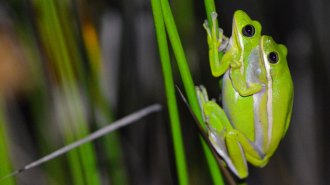 Animals
AnimalsFemale green tree frogs have noise-canceling lungs that help them hear mates
When inflated, female green tree frog lungs resonate in a way that reduces sensitivity to the sounds of other species.
-
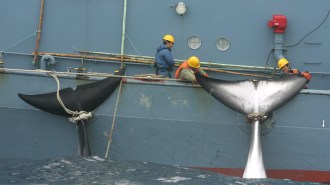
50 years ago, U.S. commercial whaling was coming to an end
Commercial whaling has brought many whale species to the brink of extinction. But after bans, some show signs of recovery.
-
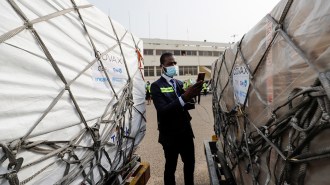 Health & Medicine
Health & MedicineGlobal inequity in COVID-19 vaccination is more than a moral problem
Wealthy countries are vaccinating at much higher rates than low-income countries. Such inequities could ultimately prolong the pandemic for all.
-
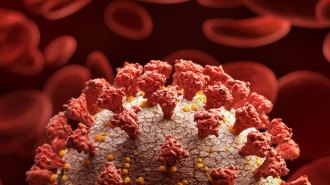 Health & Medicine
Health & MedicineThe U.K. approved the world’s first COVID-19 human challenge trial
Dozens of young, healthy volunteers will be deliberately exposed to the coronavirus to find out how much virus it takes to get someone sick.
-
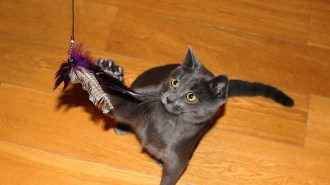 Life
LifeMeatier meals and more playtime might reduce cats’ toll on wildlife
Outdoor cats kill billions of birds and mammals each year. Simply satisfying their need to hunt or supplementing their diets could lessen that impact.